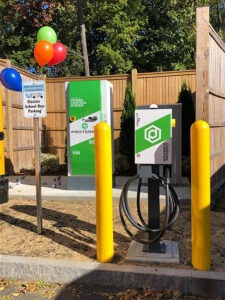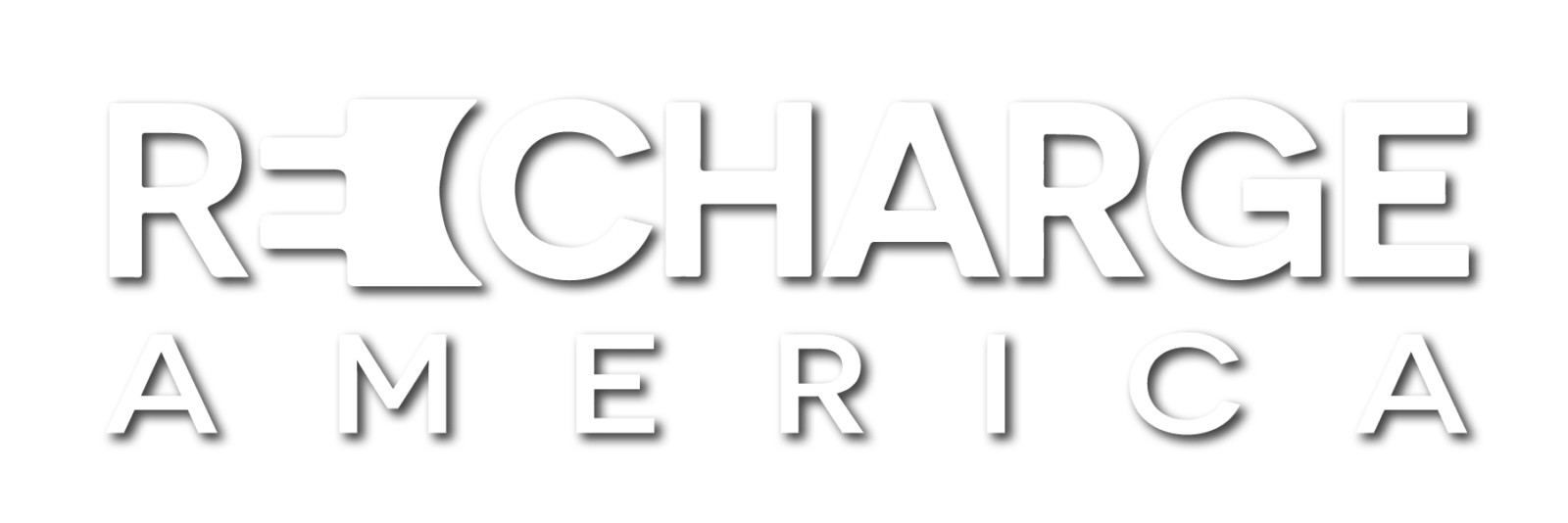 National Grid is one of the largest investor-owned utility companies globally. They serve more than 20 million people throughout Massachusetts, New York, and Rhode Island. The organization is committed to delivering safe, affordable and reliable energy to the customers and the communities that they serve. National Grid has taken on one of the most significant challenges within today’s society – ensuring that electricity and natural gas networks are in line with smarter, cleaner, and more resilient energy solutions. With the transportation sector being the largest emitter of greenhouse gas emissions, National Grid is committed to making electric vehicles (EVs) a reality for all. Supporting a cleaner environment and equal access for all communities is a key goal for National Grid, with efforts ranging from installing infrastructure, electrifying fleets, managing charge loads, and supporting its customers through EV education.
National Grid is one of the largest investor-owned utility companies globally. They serve more than 20 million people throughout Massachusetts, New York, and Rhode Island. The organization is committed to delivering safe, affordable and reliable energy to the customers and the communities that they serve. National Grid has taken on one of the most significant challenges within today’s society – ensuring that electricity and natural gas networks are in line with smarter, cleaner, and more resilient energy solutions. With the transportation sector being the largest emitter of greenhouse gas emissions, National Grid is committed to making electric vehicles (EVs) a reality for all. Supporting a cleaner environment and equal access for all communities is a key goal for National Grid, with efforts ranging from installing infrastructure, electrifying fleets, managing charge loads, and supporting its customers through EV education.
 Currently, National Grid has installed 196 charging ports across 36 of its own facilities, with over 100 ports being installed in Massachusetts. The company has committed to adopting a net-zero carbon emission light-duty fleet by 2030, and currently has over 35 light-duty EVs and over 55 medium heavy-duty plug-in hybrid vehicles (PHEVs) throughout their facilities. Additionally, the company offers EV purchase incentives and educational programs for its employees, customers, and the community. A total of 584 employees have taken advantage of company rebates to purchase EVs. With both customer and community incentives, National Grid has comprehensive programs to deploy thousands of EV charging stations throughout its service territory in order to encourage and enable EV adoption and to meet customer needs.
Currently, National Grid has installed 196 charging ports across 36 of its own facilities, with over 100 ports being installed in Massachusetts. The company has committed to adopting a net-zero carbon emission light-duty fleet by 2030, and currently has over 35 light-duty EVs and over 55 medium heavy-duty plug-in hybrid vehicles (PHEVs) throughout their facilities. Additionally, the company offers EV purchase incentives and educational programs for its employees, customers, and the community. A total of 584 employees have taken advantage of company rebates to purchase EVs. With both customer and community incentives, National Grid has comprehensive programs to deploy thousands of EV charging stations throughout its service territory in order to encourage and enable EV adoption and to meet customer needs.
National Grid continually submits custom program proposals to the state of Massachusetts to address charging needs to serve low-income and Environmental Justice communities. In 2021, National Grid filed the most extensive program to-date, National Grid’s Phase III EV Proposal, which aims to install over 32,000 charging station ports Recently, National Grid partnered with the City of Melrose in a pilot program to install 15 utility pole-mounted EV chargers across 9 different sites. The utility pole infrastructure allows the deployment of Level 2 charging stations in a faster and less costly manner, making charging access available for customers who may not have a dedicated parking garage or access to at-home charging.
 In the fall of 2021, National Grid rolled out their first V2G electric school bus in Beverly, and looks to electrify more school buses in other locations throughout the Northeast. When the school bus is not being used during the day, it works to bring electricity back to the grid during peak times. This is the first time an electric school bus has been leveraged for demand response by National Grid in New England, and is among the first instances in the U.S. Looking forward into 2022, National Grid hopes to dramatically expand its EV efforts both internally and externally. The company is fully committed to reaching net-zero emissions by 2050 by bringing more EVs into its fleet, installing more chargers at company facilities, and continuing to accelerate EV adoption by deploying innovative charging solutions and incentives, while creating unique community partnerships across its service territory.
In the fall of 2021, National Grid rolled out their first V2G electric school bus in Beverly, and looks to electrify more school buses in other locations throughout the Northeast. When the school bus is not being used during the day, it works to bring electricity back to the grid during peak times. This is the first time an electric school bus has been leveraged for demand response by National Grid in New England, and is among the first instances in the U.S. Looking forward into 2022, National Grid hopes to dramatically expand its EV efforts both internally and externally. The company is fully committed to reaching net-zero emissions by 2050 by bringing more EVs into its fleet, installing more chargers at company facilities, and continuing to accelerate EV adoption by deploying innovative charging solutions and incentives, while creating unique community partnerships across its service territory.
